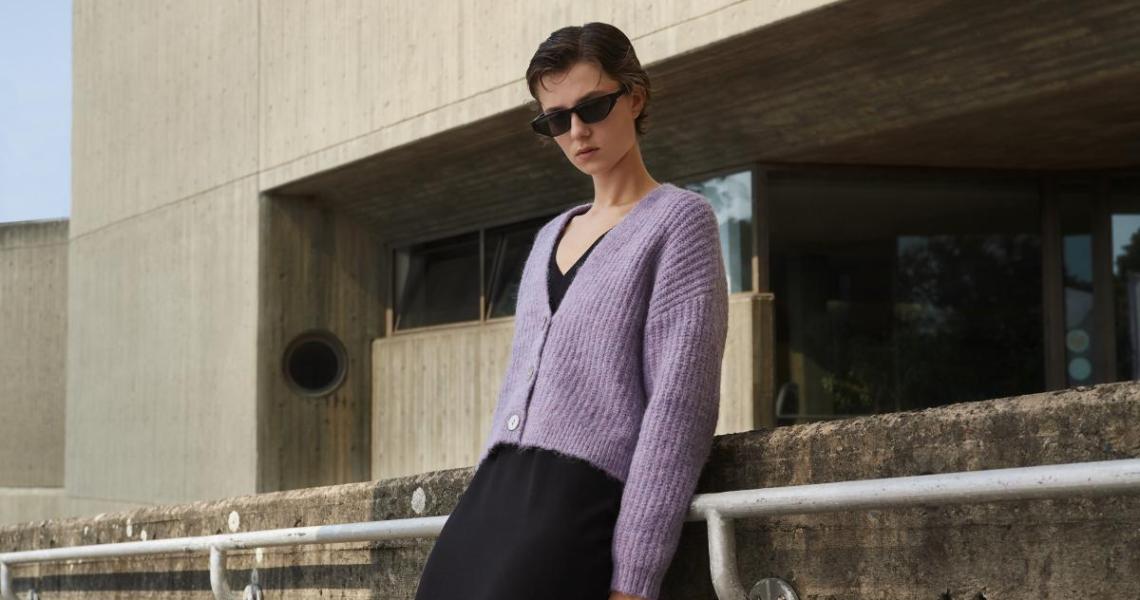For many multi-brand retailers, transforming their business into a circular one has not even begun. But German multinational e-commerce company Zalando is taking multiple steps forward with bold regenerative material initiatives, early adoption of a pre-owned section and a business culture driven by solutions.
Zalando has been outperforming others in the e-commerce space, delivering 40% growth in the second quarter of 2021. This has been bolstered by its efforts to extend the life of fashion. Its goals within its Do.More sustainability strategy state that, by 2023, it will “apply the principles of circularity and extend the life of at least 50 million fashion products.” Its most recent circular fashion investment was in Infinited Fiber, a company working to create cellulose-based raw materials into a regenerated textile fiber called Infinna. In a statement, Zalando co-CEO David Schneider said, “With the investment in Infinited Fiber Company, we initiate a collaboration with a circular technology innovator to grow the industry share of textiles recycled into new textiles, which currently sits at only 1%.”
In April this year, the company, which counts 45 million active consumers across 23 markets and carries 4,500 brands, released a report looking into shopping behavior and sustainability, based on a Europe-wide survey of 22- to 34-year-olds. Multi-brand retailers are posed with an especially difficult task, as many of their consumers in youth categories look to them for affordability first before sustainable fashion. This was confirmed in the survey.
While 60% of respondents said they consider transparency important, only 20% actively seek out information from brands before purchasing. Around 53% highlight the need for ethical labor policies, but less than half of the group researches the topic before buying. Zalando is trying to make that easier, with repair services pilots in Germany, which use the technology behind the U.K.-based digital closet app Save Your Wardrobe (SYW), as well as circular fashion collections. This approach has clearly been working, as in the past year, 50% of its customers have purchased one or more products flagged on the site as sustainable.
Zalando’s second “RedeZign for Circularity” collection from its private-label Zign, released in October this year, was created with the Ellen MacArthur Foundation and sustainability consultancy Circular.Fashion. Each item is made according to circular design principles. The first collection was made up of five products, while the latest features 50. This level of adoption of circularity within the fashion industry is rare at the retailer’s scale.
Laura Coppen, head of circularity at Zalando, said, “We know from our Attitude-Behavior Gap Report that customers increasingly want to make more sustainable choices, and around 60% of customers want to extend the lifespan of their clothes through repair, second-hand and sustainable disposal. Around 25% pass their clothes on, rather than throwing them away.” However, this is not the general consensus with consumers, who want brands in the industry to buy back their clothes and manage the initiatives needed to pass them on.
Zalando has also been early in its adoption of a “pre-owned” section on its site, even including the featured pieces across its campaigns. For many luxury brands, pre-owned can become an issue unless the items are maintained in perfect quality. Coppen said, “Since the launch in September 2020, the offer grew tenfold, from 20,000 to now over 200,000 articles [of clothing]. We have received positive feedback from the 13 markets where the offer is live. Customers appreciate the fast delivery, and the high comfort in payment methods and returns, as well as our plastic-free packaging. In our outlets, we also offer items that have minor defects, such as a missing button. These items are labeled accordingly in the store. We further make use of the opportunity to donate remaining stock to organizations like Humedica, an NGO providing humanitarian relief.”
Ad position: web_incontent_pos1
However, there is still room for improvement. One of the biggest issues brought up recently within the sustainability space concerns the Higg Index, a measure set up by the Sustainable Apparel Coalition that measures the “sustainability” impact of materials used across the industry. It’s used in Zalando’s own sustainability calculations. But the Index has been shown to be a problem when rating the materials. In 2020, the SAC increased the material sustainability index (MSI) score of silk from 681 to 1,086 and decreased polyester’s score from 44 to 36, implying that polyester is better for the planet. Natural materials, in particular, have suffered, though they don’t contribute to micro-shedding like plastics and have a longer lifespan across the product lifecycle. As Zalando moves into more circular approaches and prioritizes regenerative fiber, it will no doubt have to re-examine its use of the Higg Index for sustainability.




